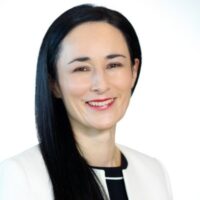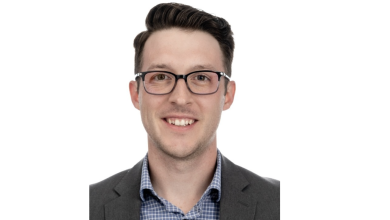
Fostering cutting-edge research, industry collaboration, and specialized skill development, Emerald Isle is becoming the premier destination for quantum innovation.
By Dr. Nicola Stokes
Quantum technologies could change how the world solves problems, such as by optimizing complex AI models, delivering new insights into areas like drug discovery and climate change, and improving how data is secured. However, quantum computing and communication systems are still in development, and companies are realizing they can’t harness the potential of this disruptive technology alone. They need partners that can augment their innovation efforts with quantum technology-related skills, research and infrastructure.
For decades, Ireland worked to create collaborative environments that industry can lean on to realize the potential of new technologies, like AI. Now, the country is forming a new ecosystem that companies can use to research and develop first-of-their-kind applications for quantum technologies.
A Foundation for Quantum Innovation
Ireland’s Quantum 2030 Strategy aims to build out the pillars that are for essential quantum technology innovation A key pillar that’s often top of mind for any disruptive technology is – talent.The world’s quantum technology workforce will be built from today’s STEM professionals who can be upskilled to take on key quantum technology roles. Today, the European Union has the world’s highest concentration of talent in fields that are related to quantum technology. Ireland has the highest STEM graduates per capita in all of Europe.
Ireland is creating learning pathways to help grow its quantum technology workforce through academic-industry collaboration.
The new Quantum Programming Foundations courses delivered through the University of Galway and the Irish Centre for High-End Computing (ICHEC) is offered as a micro-credential. The course covers quantum computing systems, tools, algorithms and applications, and equips students with knowledge for tasks like defining use cases. ICHEC also offers a separate course to help senior business leaders understand the principles and practical applications for quantum computing.
Additionally, Trinity College Dublin offers a Master degree in quantum science and technology. It focuses on both theoretical and software aspects, including quantum computer programming.
Another pillar of Ireland’s 2030 strategy is advancing academic research in quantum technology. For example, at the Science Foundation Ireland’s CONNECT Research Centre, researchers are exploring quantum communication advances and using quantum mechanics for secure information exchange. Trinity College Dublin, a member of CONNECT, has partnered with companies like IBM, Microsoft and others to launch the Trinity Quantum Alliance to strengthen collaboration between top researchers and industry experts in Ireland.
Ireland is also bringing the value of quantum into its communication infrastructure. The European Commission and the Irish government, for example, have committed more than $10 million to a national quantum communications infrastructure network. This effort aims to protect the data and sensitive communications of both the government and industry.
Work Already Underway
Today, companies operating in Ireland are actively exploring quantum technology and how it can help them gain a competitive edge. Supports from the Irish government are helping drive industrial Quantum R&D projects.
Examples of these supports include the Disruptive Technologies Innovation Fund, which can reduce the costs of quantum projects. The fund offers an attractive granting scheme, covering 40% of multinational companies’ costs for R&D and projects involving disruptive, forward-looking technology.
One company exploring quantum’s potential within its Irish operations is Mastercard. Dublin is home to the financial services provider’s European Tech Hub. From here, the company is working with industry and academia in Ireland to understand how it can harness quantum technology to strengthen its network security. Mastercard is also exploring how quantum computing can enhance and transform customer experiences, such as by optimizing loyalty programs and creating more personalized offerings for cardholders.
Fidelity Investments also has a dedicated quantum team at its Fidelity Center for Applied Technology (FCAT) lab in Dublin, which researches new technologies and how they will impact business and customers alike.
Like Mastercard, FCAT is addressing cybersecurity needs for a post-quantum world. It has also been looking at how quantum computing might be leveraged for optimization, machine learning, and Monte Carlo simulation, which Fintech companies use to help solve challenges like helping make sure customers’ investment portfolios last through retirement. “Quantum computing offers both an exciting opportunity and a novel threat,” notes Michael Dascal, Director of Quantum Product Management in FCAT, “and so we see it as vital both to investigate new capabilities and to start preparing for post-quantum cybersecurity today.”
It’s not only multinational companies that are pushing quantum technology work forward in Ireland. Indigenous Irish companies are also making breakthroughs and strengthening the country’s quantum ecosystem. Dublin-based Equal1, for instance, is helping make the technology more accessible with its Quantum System-on-a-Chip (QSoC) processors, which integrate classical and quantum computing systems into one chip.
Making the Quantum Leap
The quantum technologies market is expected to reach $173 billion by 2040. However, for all the excitement, much uncertainty remains around this still-young emerging technology. With its Quantum 2030 strategy and the pioneering work that’s already underway today, Ireland is building a collaborative environment that can help industry navigate the many questions that remain about quantum technology and bring intent to their innovation efforts.




